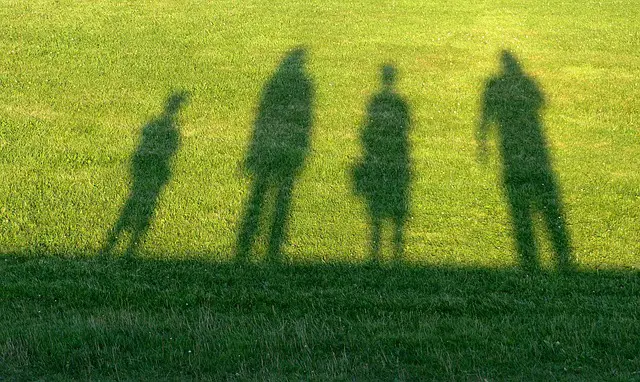Legal Protections for Battered Wives and Battered Children under the West Law: Ensuring Safety and Justice

Domestic violence inflicts profound harm on both adults and children within families, necessitating robust legal protections and support mechanisms under the West Law. This article explores the legal framework, resources, and rights available to battered wives and battered children, emphasizing avenues for safety, justice, and empowerment within the legal system.

Page Contents
Legal Protections for Battered Wives and Battered Children under the West Law: Ensuring Safety and Justice
Understanding Domestic Violence and Its Impact
Domestic violence encompasses a pattern of abusive behaviors where one intimate partner seeks to control and manipulate the other through physical, emotional, psychological, or economic abuse. Battered wives and battered children often endure prolonged trauma that jeopardizes their safety, well-being, and future prospects.
Legal Protections and Rights
- Protection Orders:
- Domestic Violence Restraining Orders (DVROs): Battered wives and mothers can seek DVROs from civil courts to protect themselves and their children from abusive partners. These orders typically prohibit the abuser from contacting or approaching the victims, including children, and may include provisions for temporary custody and visitation arrangements.
- Enforcement: Violating a protection order is a criminal offense, ensuring legal consequences for abusers who disregard court-mandated protections and ensuring the safety of battered wives and their children.
- Criminal Laws and Prosecution:
- Assault and Battery: Battered wives have the right to press criminal charges against their abusers for physical violence or threats directed at them and their children. Prosecutors pursue charges based on evidence collected by law enforcement, including witness statements and medical reports.
- Legal Support: Legal aid services and victim advocates assist battered wives and children throughout the criminal justice process, providing guidance, emotional support, and advocacy to ensure their voices are heard and their rights protected.
- Family Law Protections:
- Divorce and Custody: Battered wives can initiate divorce proceedings to legally terminate abusive marriages and seek custody of their children. Family courts consider evidence of domestic violence when determining child custody arrangements, prioritizing the safety and well-being of children.
- Child Support and Alimony: Family courts may order abusers to pay child support and alimony to provide financial stability for battered wives and their children post-divorce, ensuring their economic security.

Support Services and Resources
- Shelters and Safe Houses:
- Emergency Shelter: Battered wives and their children can seek refuge in shelters and safe houses operated by nonprofit organizations and government agencies. These facilities offer temporary housing, safety planning, counseling, and access to legal services tailored to the needs of survivors.
- Confidentiality: Shelter locations are kept confidential to protect residents from further harm or retaliation by abusers, ensuring their safety and privacy.
- Counseling and Therapy:
- Trauma Recovery: Battered wives and children benefit from trauma-informed counseling and therapy to address the emotional and psychological effects of domestic violence. Therapists provide coping strategies, self-esteem building, and support in navigating life after abuse, promoting healing and resilience.
- Support Groups: Peer support groups allow survivors, including battered wives and children, to connect with others who have experienced similar trauma, share experiences, and receive validation and encouragement in their recovery journey.
Legal Advocacy and Empowerment
- Legal Aid and Pro Bono Services:
- Free Legal Representation: Legal aid organizations and pro bono attorneys offer free or low-cost legal assistance to battered wives and children seeking protection orders, divorce, child custody, and financial support. These services empower survivors to navigate complex legal processes and assert their rights within the justice system.
- Know Your Rights: Battered wives and children are informed of their legal rights, options, and the steps involved in pursuing legal remedies, enabling informed decision-making and effective advocacy for their safety and well-being.
- Community and Outreach Programs:
- Education and Awareness: Community programs raise awareness about domestic violence, its impact on families, and available resources for survivors, including battered wives and children.
- Prevention Initiatives: Educational workshops and outreach efforts promote healthy relationships, conflict resolution skills, and bystander intervention to prevent domestic violence and support families in crisis before harm occurs.
Conclusion
In conclusion, battered wives and battered children have legal protections and support services under the West Law that are essential for their safety, recovery, and empowerment. By accessing protection orders, legal advocacy, shelter, counseling, and community resources, survivors of domestic violence can seek justice, heal from trauma, and rebuild their lives free from abuse. Legal professionals, victim advocates, and community organizations play critical roles in supporting survivors through legal processes and promoting systemic change to end domestic violence and ensure the safety and well-being of all individuals within families. Continued efforts to raise awareness, strengthen legal protections, and provide comprehensive support are essential in creating a society where survivors are empowered to thrive and live free from fear and violence.






